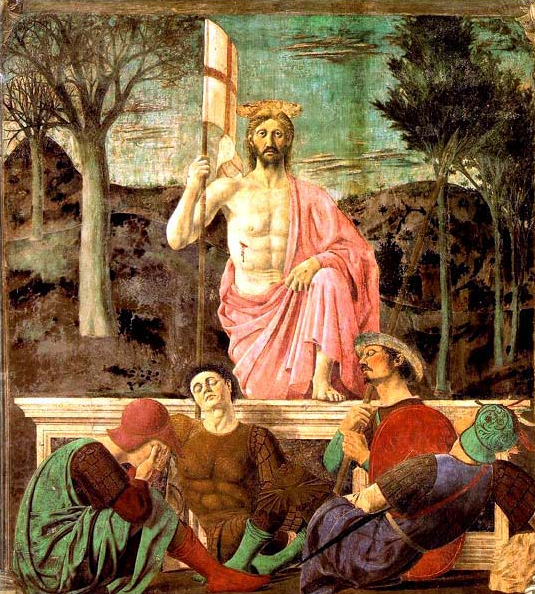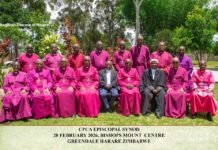It is easy for the orthodox within the Church of England to feel altogether depressed about the current situation in which they find themselves after all there has been disappointment after disappointment. The approval of the Prayers of Love and Faith resource section under canon B5 and the previous decision of the Bishops introducing guidance indicating someone identifying themselves in a gender other than their sex[1] can have this new identity incorporated liturgically hold one thing in common and that is that they avoided the proper process for liturgical or doctrinal reform. This is vitally important because it means that rather than the rules of the game legally having been changed as they were so that the Church could ordain women to the Priesthood instead the rules have remained but the umpires have declared they will look the other way. There are those who say that a law not enforced is not a law at all but this simply is not true. Laws may lay dormant for years before being put into use. The change of the makeup of the Supreme Court in the US in recent years and the overturning of Roe vs Wade that it led too show the enduring importance of laws even when they are deliberately misapplied for years by the umpires. Overturning Roe vs Wade was possible because the constitution of the US had not changed and so when the umpires changed there was always a possibility they’d stop looking the other way and in this case they did. For the orthodox in the Church of England then it is very important that the canons have not in fact been changed and so they have reason to hope; at times this may seem like a hoping against hope just like I am sure it did for those who campaigned for the overturning of Roe vs. Wade and a restoration of legal order, but hope we must. To put it another way it is important the orthodox don’t let disappointment dis-appoint them but rather give the disappointment to God and recommit themselves to what God has appointed them to do; in other words the orthodox need to stay the course. The orthodox in the Church of England have bought into the progressive narrative for far too long and many seem to believe the destruction of revisionists is unstoppable but it is not. The reality is that there is no legal way forwards for the Prayers of Love and Faith beyond what has already been approved, and what already has been approved the bishops themselves recognise “has no legal effect” (GS2346, p11.).
The Current Situation
I have thought for a while that the reason for the separation made between the PLF resources and the standalone services, and the previous proposed separation of Holy Matrimony and Civil Marriage, was grounded not in theology but a contorted legal argument and the recent release of synod papers appear to confirm this. Here is the legal reality I believe the Bishops have found themselves in: If they admit that introducing prayers of blessing for those in sexual relationships outside of marriage is a significant change to doctrine and liturgy which requires a B2 route (or B5A route) then what they effectively do is admit that the current practice of carrying out such blessings which has been going on for years in the Church of England is illicit. In other words they are in a catch 22 because if they declare that it is not a significant change then there is no need for a B5A/B2 approval of the blessings of those in sexual relationships outside of marriage, but if they seek a permanent change through B2 they admit such action is illicit which means it should face legal censure currently.
What the bishops have done to resolve this issue is itself very interesting. They have declared that such blessings are not of the sexual relationship itself seemingly because to do so would be a change in doctrine requiring a 2/3rds majority within synod. In doing so they have conceded that any blessing which explicitly or implicitly blesses the sexual element of a relationship outside of marriage would be a significant change in doctrine/liturgy and therefore is illicit. Therefore, they created a distinction between regular and standalone services so they could say that whereas in a standalone service the focus is on the couple and so it can be seen as blessing the relationship itself in a regular service the couple are not the primary focus and so prayers for them might not necessarily be seen as an affirmation of their relationship. The argument legally goes roughly along the lines that just as including in the prayers of the people prayer for someone who is ill and their unmarried sexual partner who is supporting them does not imply an approval of said relationship so likewise nor does praying for a furthering of other goods within a relationship imply an approval of the relationship as a whole. There is a problem though which is that what the bishops want to be approved are not simply prayers of intercession within regular services but whole service of blessing upon same-sex couples. How can this be done when “blessings of their nature are ordered to communion with God; to conversion and sanctification, and so can never be bestowed on sinful acts nor legitimise relationships that are intrinsically incompatible with the divine plan”?[2].
This is where Pope Francis entered the scene with the issuing of Fiducia Supplicans which thoroughly muddies the waters much to Archbishop Justin Welby’s relief; muddying waters is something which Welby is a big advocate for and even sees as a step towards reconciliation[3]. Now the bishops see the fictional idea that when you bless a couple, who are presenting to you as a unit, that you do not in fact bless them, as a unit, but only the individuals before you, regardless of appearance as a solution to the problem. The legal argument for services of blessing for same-sex couples now goes something like this: Whilst to all intents and purposes it may appear as an approval of the relationship seeing as it’s the central focus of the service in reality we are only blessing the individuals and seeking a furthering of the good that they do in their lives. The bishops are emboldened and think they’ve found a way of introducing blessings without changing the canons by appealing to the exact thoughts that Fiducia Supplicans sets out ie. “when people ask for a blessing, an exhaustive moral analysis should not be placed as a precondition for conferring it”[4]. Yet at least in the case of the House of Bishops it is obvious that this lack of a moral analysis is a deliberate legal act which essentially amounts to a don’t ask don’t tell policy. These actions are a fairly blatant use of casuistry for if the individuals involved were sexually active and understood the blessing to bless their (sexual) relationship then for a minister to proceed would be an illicit act because everyone knows you can not bless sin.
The final act in this great deception is yet to come and I believe it could be for synod to encourage synod to formally declare that Holy Matrimony is a distinct and separate institution from civil marriage. Perversely the argument for this may be that to do so is to ensure blessings “do not convey an erroneous conception of marriage”[5]. This would open the way for the House of Bishops to issue pastoral guidance stating that clergy can be in same-sex marriages. The result of this would then be that the government was free to change the conditions around how marriages are registered so as to enable same-sex marriages to happen in Church of England churches. Currently for a marriage to be registered both a registered premises and a registrar are needed but in Scotland you can get married anywhere, you only need a registrar. If the Church of England were to declare same-sex marriage not contrary to its doctrine, which is the effect declaring civil marriage is a separate institution from Holy Matrimony would have then it would no longer be a matter of Church law as to whether a marriage could be registered in a church or not. The government could simply allow for marriages to be registered anywhere, by any registrar, and treat all Church of England ministers as ordinary registrars. Such marriages would not be Church of England services and this would leave bishops with very little power to oppose the services themselves as they would not come under the censure of Canon C18.4. Challenge via disciplinary measures on ministers would also be hamstrung as by the introduction of guidance that ministers can in fact be in same-sex marriages which implies this is not contrary to the need for ministers to “frame and fashion his life and that of his family according to the doctrine of Christ, and to make himself and them, as much as in him lies, wholesome examples and patterns to the flock of Christ”. The enabling of an act consider to be suited to this canon could therefore not be grounds for bringing disciplinary action against ministers. In other words to introduce services of blessing for same-sex couples with the accompanying pastoral guidance and to formally recognise civil marriage as a separate institution to Holy Matrimony would open the door to same-sex marriages in churches without the need for any further synod vote.
The way forwards
Reading the above I would forgive you for thinking that the revisionists are unstoppable but they are not. I am not denying that there is very little chance of any moves in synod to stop the revisionists being successful as there is currently a very small majority in favour of revision in synod. Yet all it would take was one Diocesan bishop to stand up and say no to stop things. For “Every bishop has within his diocese jurisdiction as Ordinary except in places and over persons exempt by law or custom.”[6]and “may give such pastoral guidance, advice or directions as he may think fit”[7] in relation to any liturgical material commended but not approved such as the PLF resources. What this means is any Bishop can issue directions that the PLF resources not be used as they are indicative of a departure from the doctrine of the Church of England in an essential matter. Even if the Canon B5A route was taken the Diocesan bishop could still use their general right to the “conducting, ordering, controlling, and authorizing [of] all services”[8] within their jurisdiction to direct that they not be used. Alternatively any Bishop could issue pastoral guidance with directions stipulating that the resources or services could only be used in line with this new guidance they had issued. Were but one Bishop to publicly fulfil their duty to “to uphold sound and wholesome doctrine, and to banish and drive away all erroneous and strange opinions”[9] as they vowed to do at their consecration then the whole thing would grind to a halt. If this happened the conduction of any service using PLF would come at a heightened legal risk for any minister conducting a service across the whole country the sole competent legal authority (a Diocesan) to have made a judgement so far would have judged it contrary to the canons. The House of Bishops is not here a competent legal authority for they have no role under the canons but rather it is a Diocesan alone who has the power to offer both pastoral advice and directions in relation to the use of services under Canon B5. Were another Diocesan to then give contrary advice and directions more in line with the current House of Bishops statements this would be a very brave thing to do seeing as those actions were taken despite legal advice being that there was a “medium to high risk of successful legal challenge”[10]. It would open up the Diocesan who does so to proceedings under and ecclesiastical jurisdiction measure, and it would open the whole PLF process to a judicial review which would not look at the rights and wrongs of PLF but rather whether the bishops acted legally in using Canon B5 or B5A at all. My plea then is as follows that all orthodox Anglicans pray for the Church of England’s Bishops. That those at general synod this week spend as much time as possible with the Diocesans encouraging them to take action. After all the paper related to PLF before them is primarily designed to ostracise and bully the Diocesans who are resisting PLF into silence and therefore the vote is less relevant than the encouragement they might receive. For any Church of England wardens, PCC members, or clergy who have a Diocesan who is seeking to uphold the Church’s teaching on marriage and sexuality I have drafted a model letter which makes a request for their diocesan too issue guidance and directions as they see fit.
A Prayer[11]:
ALMIGHTY God and most merciful Father, who of thine infinite goodness hast given thine only and dearly beloved Son Jesus Christ, to be our Redeemer and the Author of everlasting life; who, after that he had made perfect our redemption by his death, and was ascended into heaven, poured down his gifts abundantly upon men, making some Apostles, some Prophets, some Evangelists, some Pastors and Doctors, to the edifying and making perfect his Church: Grant, we beseech thee, to the Bishops of the Church of England, that they may evermore be ready to spread abroad thy Gospel, the glad tidings of reconciliation with thee; and use the authority given him, not to destruction, but to salvation; not to hurt, but to help: so that as a wise and faithful servant, giving to thy family their portion in due season, each may at last be received into everlasting joy; through Jesus Christ our Lord, who with thee and the Holy Ghost liveth and reigneth, one God, world without end. Amen.
[1] The guidance suggest the new identity be affirmed by the chosen name and pronouns of an individual being used to liturgically address them e.g. at their baptism or at a service of an affirmation of baptismal faith. https://www.churchofengland.org/sites/default/files/2018-12/pastoral-guidance-affirmation-baptismal-faith.pdf
[2] Australian Confraternity of Catholic Clergy in response to Fiducia Supplicans as reported by the Pillar (https://www.pillarcatholic.com/p/fiducia-supplicans-whos-saying-what)
[3] The Power of Reconcilliation, p90.
[4] Fiducia Supplicans, paragraph 25.
[5] Fiducia Supplicans, paragraph 26.
[6] Church of England Canon C18.2
[7] Church of England Canon B5.4
[8] Church of England Canon C18.4
[9] Church of England Canon C18.1
[10] GS2346 p13
[11] Adapted from the 1662 BCP form of service for the consecration of Bishops.



